Książki

Polskojęzyczne
O depresji w ciąży i po porodzie — Iwona Koszewska
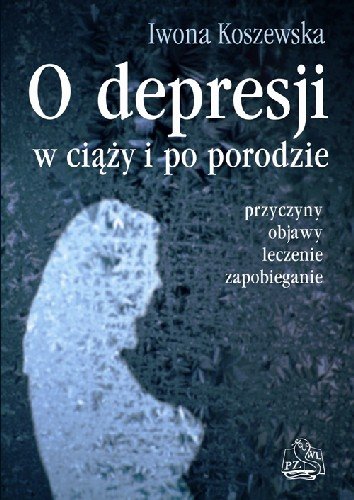 Autorka opisuje przyczyny depresji, objawy, metody leczenia i
terapii. Poradnik jest pomyślany jako przewodnik pomagający
zrozumieć przyczyny stanów depresyjnych i przedstawiający sposoby
pomocy i wspierania kobiety w depresji, bo według autorki kluczem do
pokonania depresji poporodowej jest jej zrozumienie. Autorka jest
pracownikiem Instytutu Psychiatrii i Neurologii w Warszawie. Zajmuje
się leczeniem depresji i zapobieganiem chorobom afektywnym.
Autorka opisuje przyczyny depresji, objawy, metody leczenia i
terapii. Poradnik jest pomyślany jako przewodnik pomagający
zrozumieć przyczyny stanów depresyjnych i przedstawiający sposoby
pomocy i wspierania kobiety w depresji, bo według autorki kluczem do
pokonania depresji poporodowej jest jej zrozumienie. Autorka jest
pracownikiem Instytutu Psychiatrii i Neurologii w Warszawie. Zajmuje
się leczeniem depresji i zapobieganiem chorobom afektywnym.
Depresja poporodowa — Anna Morawska
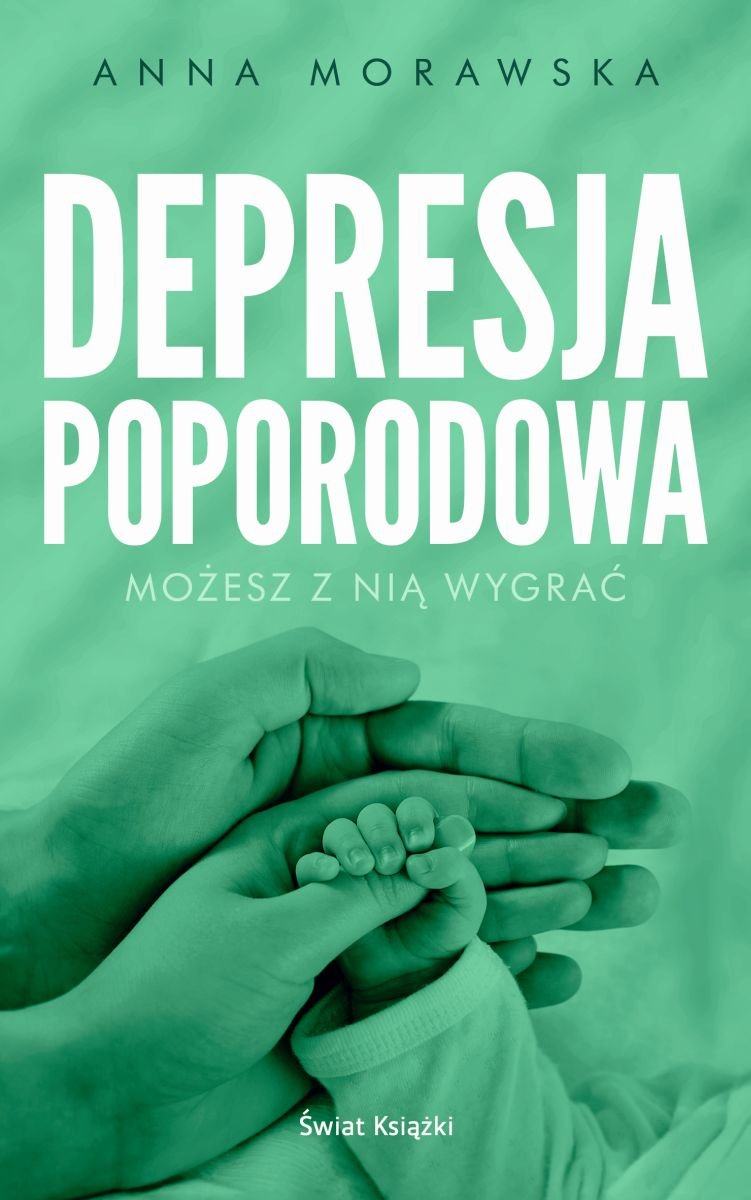 Płaczesz. Brakuje ci siły, by zająć się dzieckiem. Boisz się, że nie
dasz rady go wychować, że nie potrafisz być dobrą matką. Objawów
depresji poporodowej jest wiele. Dziecko odmienia życie każdej
kobiety, ale nie zawsze może ona w pełni cieszyć się macierzyństwem.
Z depresją poporodową walczy co dziesiąta matka. Po raz pierwszy
kobiety, które jej doświadczyły, opowiedziały o swoich zmaganiach po
urodzeniu dziecka. Anna Morawska przełamuje tabu i rozmawia o jednej
z najczęściej przemilczanych depresji – depresji poporodowej.
Leczenie i psychoterapia to jedyna droga, by wygrać z tą chorobą -
śmiertelnie niebezpieczną dla matki i dziecka.
Płaczesz. Brakuje ci siły, by zająć się dzieckiem. Boisz się, że nie
dasz rady go wychować, że nie potrafisz być dobrą matką. Objawów
depresji poporodowej jest wiele. Dziecko odmienia życie każdej
kobiety, ale nie zawsze może ona w pełni cieszyć się macierzyństwem.
Z depresją poporodową walczy co dziesiąta matka. Po raz pierwszy
kobiety, które jej doświadczyły, opowiedziały o swoich zmaganiach po
urodzeniu dziecka. Anna Morawska przełamuje tabu i rozmawia o jednej
z najczęściej przemilczanych depresji – depresji poporodowej.
Leczenie i psychoterapia to jedyna droga, by wygrać z tą chorobą -
śmiertelnie niebezpieczną dla matki i dziecka.
Angielskojęzyczne
Postpartum Depression for Dummies — Shoshana S. Bennett
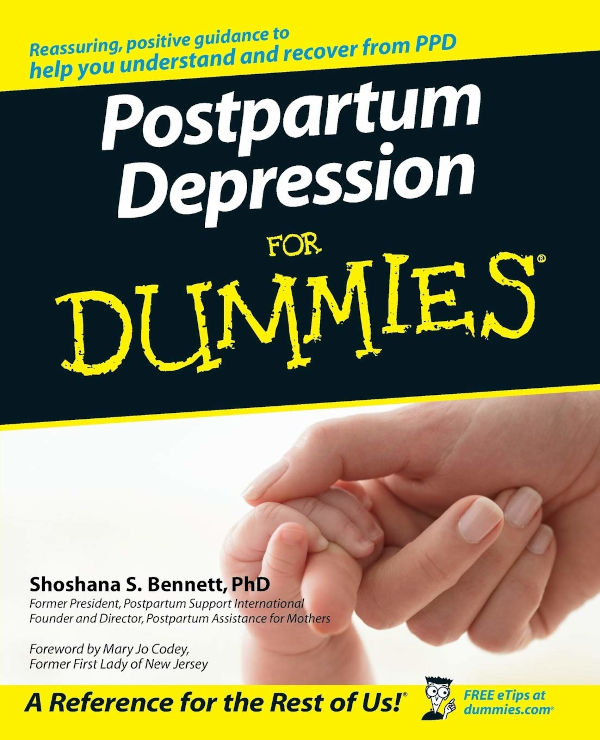 It's a great blessing when a new mom with postpartum depression
(PPD) is fortunate enough to be diagnosed early by a knowledgeable
medical practitioner or therapist. But without guidance, it isn't
always clear where the boundary between normal baby blues and PPD
lies. As with any other illness, the quicker that PPD is identified
and treated, the faster the woman will recover. Postpartum
Depression For Dummies can help you begin the process of determining
what's going on with you and give you a better idea of where you
fall so that you can get yourself into proper treatment right away.
The book covers all aspects of PPD, from its history and its origins
to its effects on women and their families to the wide variety of
treatments available--including conventional Western medicine,
psychological therapy, alternative medical treatments, and self-care
measures.
It's a great blessing when a new mom with postpartum depression
(PPD) is fortunate enough to be diagnosed early by a knowledgeable
medical practitioner or therapist. But without guidance, it isn't
always clear where the boundary between normal baby blues and PPD
lies. As with any other illness, the quicker that PPD is identified
and treated, the faster the woman will recover. Postpartum
Depression For Dummies can help you begin the process of determining
what's going on with you and give you a better idea of where you
fall so that you can get yourself into proper treatment right away.
The book covers all aspects of PPD, from its history and its origins
to its effects on women and their families to the wide variety of
treatments available--including conventional Western medicine,
psychological therapy, alternative medical treatments, and self-care
measures.
The Postpartum Husband — Karen Kleiman
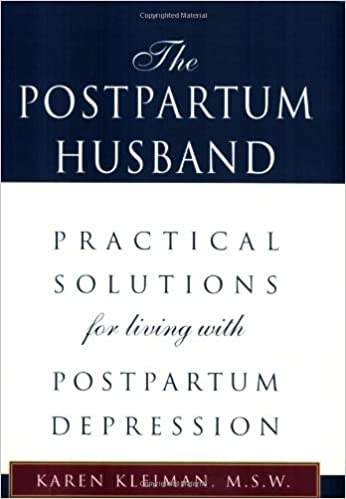 This hands-on guide includes straightforward, supportive information
and specific recommendations to help partners deal with the impact
of depression after the birth of a baby.
This hands-on guide includes straightforward, supportive information
and specific recommendations to help partners deal with the impact
of depression after the birth of a baby.
Adventures with Postpartum Depression — Courtney Novak
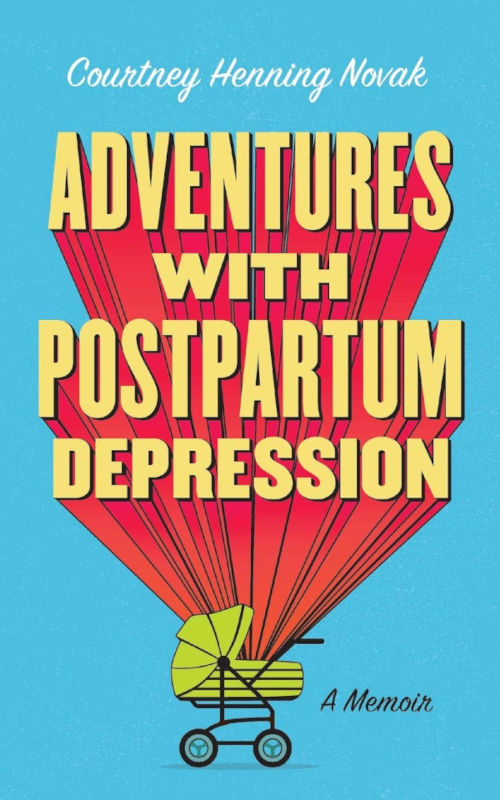 After the birth of her first child, Courtney Novak was blindsided by
postpartum depression. Her maternal mental illness started with a
pervasive sense of guilt and quickly morphed into anxiety, insomnia
and neurotic behaviors like checking to make sure her baby was still
breathing dozens of times each night. When she started having dark
intrusive thoughts of throwing her daughter, she finally asked for
help.
After the birth of her first child, Courtney Novak was blindsided by
postpartum depression. Her maternal mental illness started with a
pervasive sense of guilt and quickly morphed into anxiety, insomnia
and neurotic behaviors like checking to make sure her baby was still
breathing dozens of times each night. When she started having dark
intrusive thoughts of throwing her daughter, she finally asked for
help.
Good Moms Have Scary Thoughts — Karen Kleiman
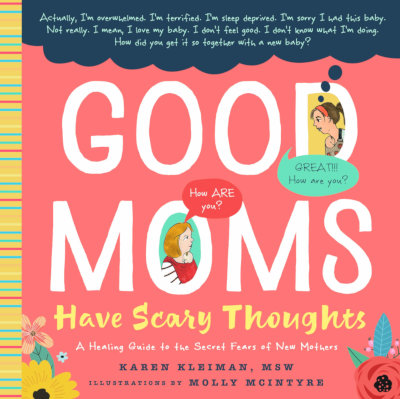 Over 90 percent of new mothers will have scary, intrusive thoughts
about their baby and themselves. What if I drop him? What if I snap
and hurt my baby? Mothering is so hard—I don't know if I really want
to do this anymore. Gosh, I'm so terrible for thinking that! Yet for
too many mothers, those thoughts remain secret, hidden away in a
place of shame that can quickly grow into anxiety, postpartum
depression, and even self-harm. But here's the good news: you CAN
feel better!
Over 90 percent of new mothers will have scary, intrusive thoughts
about their baby and themselves. What if I drop him? What if I snap
and hurt my baby? Mothering is so hard—I don't know if I really want
to do this anymore. Gosh, I'm so terrible for thinking that! Yet for
too many mothers, those thoughts remain secret, hidden away in a
place of shame that can quickly grow into anxiety, postpartum
depression, and even self-harm. But here's the good news: you CAN
feel better!
Rattled: Overcoming Postpartum Psychosis — Jen Wight
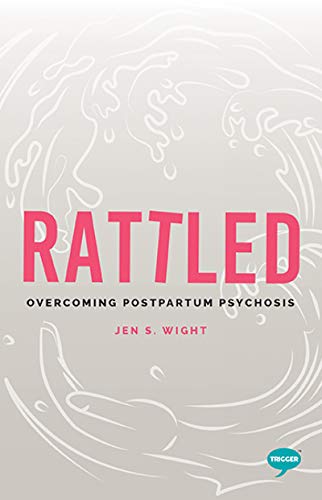 Parenthood brings sleepless nights, tears and tantrums, nappy
changes from hell, and the firm belief that you’re Cameron Diaz…
wait, what?! New mum, Jen Wight, definitely wasn’t expecting that.
But after her son was born, her worldview shifted in strange and
unexpected ways. Within weeks, Jen found herself living a very
different life – working out the deeper connections underpinning
existence, and discussing strategy with Barack Obama. The problem
is, no one else could see what she saw. Not even her next-door
neighbour, Renée Zellweger!
Parenthood brings sleepless nights, tears and tantrums, nappy
changes from hell, and the firm belief that you’re Cameron Diaz…
wait, what?! New mum, Jen Wight, definitely wasn’t expecting that.
But after her son was born, her worldview shifted in strange and
unexpected ways. Within weeks, Jen found herself living a very
different life – working out the deeper connections underpinning
existence, and discussing strategy with Barack Obama. The problem
is, no one else could see what she saw. Not even her next-door
neighbour, Renée Zellweger!
Why Breastfeeding Grief and Trauma Matter — Amy Brown
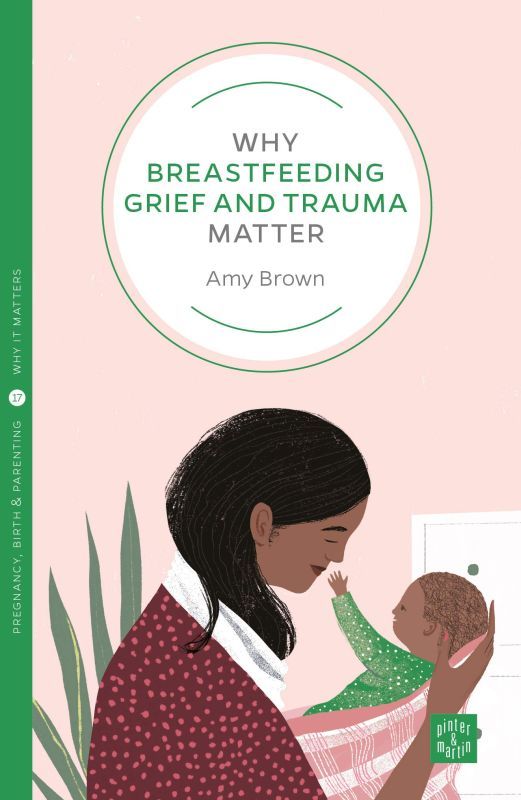 A startlingly large number of women who want to breastfeed have to
stop before they are ready, leaving them feeling a range of negative
emotions, including grief, anger, guilt, shame and frustration, and
often blaming themselves. But in a society that places little value
on breastfeeding and mothers' feelings, their painful stories are
often swept under the carpet to the detriment of women's mental
health and experience of new motherhood.
A startlingly large number of women who want to breastfeed have to
stop before they are ready, leaving them feeling a range of negative
emotions, including grief, anger, guilt, shame and frustration, and
often blaming themselves. But in a society that places little value
on breastfeeding and mothers' feelings, their painful stories are
often swept under the carpet to the detriment of women's mental
health and experience of new motherhood.
